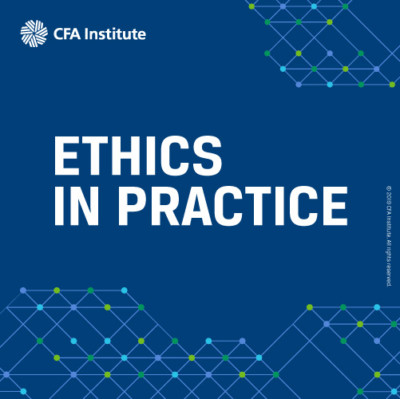Ethics in Practice: Investment Research During a Global Pandemic. Case and Analysis–Week of 4 May
Analysis Now Posted!
This Ethics in Practice case is part of a series that CFA Institute began publishing in 2017. This particular case relates to ethical issues facing investment professionals in an era of global pandemic. Past cases are available to help you exercise your ethical decision-making skills in the CFA Institute Ethics in Practice Casebook, a compilation of over 100 previously published cases and corresponding analyses.
Case
In the past, Yoon, a research analyst covering the global travel and lodging industry, has routinely met with the management of companies that she covers and visited their facilities prior to drafting and updating her research reports. Yoon considers it critical to her work to gain first-hand knowledge of the management and facilities and obtain feedback from employees and guests of the properties. Because of restrictions on travel and in-person gatherings brought on by a global pandemic, she is not able to conduct the type of thorough research she has conducted in the past. Nevertheless, Yoon’s employer is demanding constant updates on her research given the swiftly changing environment for this industry. Yoon should
- provide only factual information about the companies and refrain from any analysis until she can resume her normal research practices and form a detailed and well-researched opinion.
- conduct her research as best she can given the restrictions and disclose any issues in her report.
- provide no information on how she conducts her research because that information is proprietary information of the firm.
- continue to provide research but make no mention of how the research process has been affected by the travel restrictions.
- none of the above.
Analysis
CFA Institute Standard V(A): Diligence and Reasonable Basis requires CFA Institute members to exercise diligence, independence, and thoroughness as well as have a reasonable and adequate basis supported by appropriate research and investigation for making investment recommendations or taking investment action. Yoon’s well-established routine and procedures for conducting analysis of the global travel and lodging industry are disrupted by the global pandemic. Steps she normally takes to thoroughly analyze her investment recommendations are now prohibited. Although she could refrain from undertaking any analysis until her high standards of investigation can be resumed (A), that is likely not practical given the uncertainty of when the restrictions will be lifted and the demands of her employer.
Standard V(B): Communication with Clients and Prospective Clients requires members to disclose the basic format and general principles of the investment processes they use to analyze investments and select securities. Although Yoon does not have to provide the minute detail of her research process that would give away confidential or proprietary information, she must disclose the basic process for conducting her research. Therefore, the course of conduct in Choice C would not be an option. If she continues to provide research and recommendations without any mention about the change in process for conducting that research and that her in-person capabilities have diminished (D), that would violate Standard V(B), which requires CFA Institute members to disclose any changes that may materially affect the investment process they use to analyze investments and disclose any limitations and risks associated with the process. Given the facts, Yoon’s best course of action is Choice B, which is to conduct her research as best she can given the restrictions and disclose any issues in her report.
CFA Institute Members: This case qualifies for 0.25 Professional Learning (PL) hours, including 0.25 hours in the content areas of Standards, Ethics, and Regulations (SER). Be sure to visit the Continuing Education tracker to receive 0.25 PL/0.25 SER credits for completing this case.
Let us know what you think of Ethics in Practice by taking this short survey.
Have an idea for a case for us to feature? Send it to us at [email protected].
More About the Ethics in Practice Series
Just as you need to practice to become proficient at playing a musical instrument, public speaking, or playing a sport, practicing assessing and analyzing situations and making ethical decisions develops your ethical decision-making skills. The Ethics in Practice series gives you an opportunity to “exercise” your ethical decision-making skills. Each week, we post a short vignette, drawn from real-world circumstances, regulatory cases, and CFA Institute Professional Conduct investigations, along with possible responses/actions. We then encourage you to assess the case using the CFA Institute Ethical Decision-Making Framework and through the lens of the CFA Institute Code of Ethics and Standards of Professional Conduct.
Image Credit: ©CFA Institute


B seems to be the most practical course under the circumstances – continue to conduct research as best a possible, report on findings, but disclose the limitations of the research
Being an auditor having 15 years experience, I would analyze this situation as analyst and an auditor too. If during I have limited information available due to any reason, I should give my opinion disclosing the fact that full information couldn’t not be collected because of circumstances.
Do her best under prevailing circumstances and report assumptions and limitations